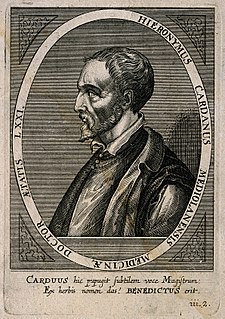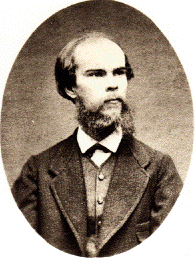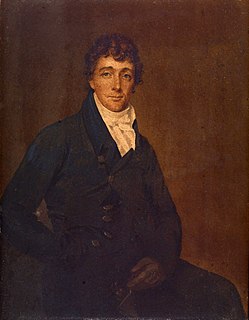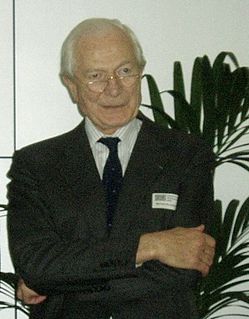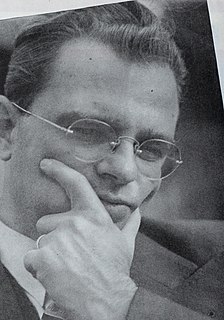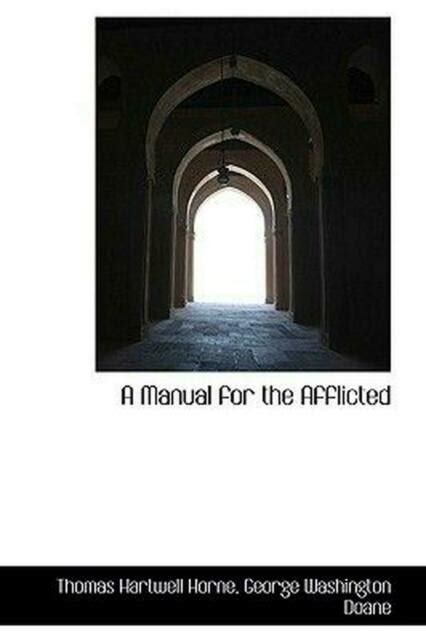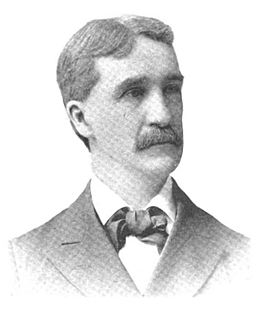Top 1200 Pleasures Quotes & Sayings - Page 20
Explore popular Pleasures quotes.
Last updated on December 4, 2024.
She suffers as a miser. She must be miserly with her pleasures, as well. I wonder if sometimes she doesn't wish she were free of this monotonous sorrow, of these mutterings which start as soon as she stops singing, if she doesn't wish to suffer once and for all, to drown herself in despair. In any case, it would be impossible for her: she is bound.
So Positive Psychology takes seriously the bright hope that if you find yourself stuck in the parking lot of life, with few and only ephemeral pleasures, with minimal gratifications, and without meaning, there is a road out. This road takes you through the countryside of pleasure and gratification, up into the high country of strength and virtue, and finally to the peaks of lasting fulfillment: meaning and purpose
Let your boat of life be light, packed with only what you need - a homely home and simple pleasures, one or two friends, worth the name, someone to love and someone to love you, a cat, a dog, and a pipe or two, enough to eat and enough to wear, and a little more than enough to drink; for thirst is a dangerous thing.
They did laugh; they did fall in love. And while they were under incredibly oppressive conditions, they constantly were trying to steal pleasures. When you go back to the slave narratives, and you read books like the 'Bullwhip Days' or 'Incidents in the Life of the Slave Girl,' they will share what life was like, and it's a 365-degree view.
If you were my queen, truly my queen, our court would be stronger still. If you were mine , without mortal distractions, we'd be safer. We'd be stronger if we were truly together. Summer is a time to rejoice in pleasures and heat. When I'm around you, I want to forget everything else. I love Donia. I always will, but when I'm near you--" He stopped himself.
The sovereign good of man is a mind that subjects all things to itself and is itself subject to nothing; such a man's pleasures are modest and reserved, and it may be a question whether he goes to heaven, or heaven comes to him; for a good man is influenced by God Himself, and has a kind of divinity within him.
That which the French proverb hath of sickness is true of all evils, that they come on horseback, and go away on foot; we have often seen a sudden fall or one meal's surfeit hath stuck by many to their graves; whereas pleasures come like oxen, slow, and heavily, and go away like post-horses, upon the spur.
There is no lighter burden, nor more agreeable, than a pen. Other pleasures fail us or wound us while they charm, but the pen we take up rejoicing and lay down with satisfaction, for it has the power to advantage not only its lord and master, but many others as well, even though they be far away - sometimes, indeed, though they be not born for thousands of years to come.
Men spend their lives in anticipations,—in determining to be vastly happy at some period when they have time. But the present time has one advantage over every other—it is our own. Past opportunities are gone, future have not come. We may lay in a stock of pleasures, as we would lay in a stock of wine; but if we defer the tasting of them too long, we shall find that both are soured by age.
Never before has the seductive market way of life held such sway in nearly every sphere of American life. This marketing way of life promotes addictions to stimulation and obsessions with comfort and convenience ... centered primarily around bodily pleasures and status rankings. ... The common denominator is a rugged and ragged individualism and rapacious hedonism in quest of a perennial "high" in body and mind.
To me it seems to be important to believe people to be good even if they tend to be bad, because your own joy and happiness in life is increased that way, and the pleasures of the belief outweigh the occasional disappointments. To be a cynic about people works just the other way around and makes you incapable about enjoying the good things.
Aesthetic value emanates from the struggle between texts: in the reader, in language, in the classroom, in arguments within a society. Aesthetic value rises out of memory, and so (as Nietzsche saw) out of pain, the pain of surrendering easier pleasures in favour of much more difficult ones ... successful literary works are achieved anxieties, not releases from anxieties.
By these pleasures it is permitted to relax the mind with play, in turmoils of the mind, or when our labors are light, or in great tension, or as a method of passing the time. A reliable witness is Cicero, when he says (De Oratore, 2): 'men who are accustomed to hard daily toil, when by reason of the weather they are kept from their work, betake themselves to playing with a ball, or with knucklebones or with dice, or they may also contrive for themselves some new game at their leisure.'
I love this word decadence, all shimmering in purple and gold. It suggests the subtle thoughts of ultimate civilization, a high literary culture, a soul capable of intense pleasures. It throws off bursts of fire and the sparkle of precious stones. It is redolent of the rouge of courtesans, the games of the circus, the panting of the gladiators, the spring of wild beasts, the consuming in flames of races exhausted by their capacity for sensation, as the tramp of an invading army sounds.
In every sound convert the judgment is brought to approve of the laws and ways of Christ, and subscribe to them as most righteous and reasonable; the desire of the heart is to know the whole mind of Christ; the free and resolved choice of the heart is determined for the ways of Christ, before all the pleasures of sin, and prosperities of the world; it is the daily care of his life to walk with God.
We can rest contentedly in our sins and in our stupidities, and anyone who has watched gluttons shoveling down the most exquisite foods as if they did not know what they were eating will admit that we can ignore even pleasure. But pain insists upon being attended to. God whispers to us in our pleasures, speaks in our consciences, but shouts in our pains. It is his megaphone to rouse a deaf world.
Nothing but Christianity will give you the victory. Until a man believes in his heart that Jesus Christ is his Lord and Master... his course through life will be neither safe nor pleasant. My only regret is that I was so long blinded by my pleasures, my vices and pursuits, and the examples of others that I was kept fr...om seeing, admiring, and adoring the marvelous light of the gospel.
Earth fills her lap with pleasures of her own;
Yearnings she hath in her own natural kind,
And, even with something of a mother's mind,
And no unworthy aim,
The homely nurse doth all she can
To make her foster child, her inmate man,
Forget the glories he hath known
And that imperial palace whence he came.
Were all the pleasures in the world, even pure air, made solely for the rich? I think it is immoral - it is horrible! - that one man may own twenty millions of money, and another has to commit a crime to keep the life in his miserable body. And if I were wealthy, I'd be a spendthrift! It's the spendthrifts who are the real friends of the poor. Some of their money filters through to the very lowest classes.
The world that we live in is full of distractions and pleasures that pull us away from a spiritual life. Even our jobs which are a very necessary and important part of our lives can end up being the altar at which we pray. They consume most of our waking hours and provide the income on which we are dependent in order to take care of our families.
Every man is of importance to himself, and, therefore, in his own opinion, to others; and, supposing the world already acquainted with his pleasures and his pains, is perhaps the first to publish injuries or misfortunes which had never been known unless related by himself, and at which those that hear them will only laugh, for no man sympathises with the sorrows of vanity.
None but those who have learned the art of subjecting their senses as well as reason to hypothetical systems can be persuaded by the most specious rhetorician that the lots of life are equal; yet it cannot be denied that every one has his peculiar pleasures and vexations, that external accidents operate variously upon different minds, and that no man can exactly judge from his own sensations what another would feel in the same circumstances.
The love of solitude, when cultivated in the morn of life, elevates the mind to a noble independence, but to acquire the advantages which solitude is capable of affording, the mind must not be impelled to it by melancholy and discontent, but by a real distaste to the idle pleasures of the world, a rational contempt for the deceitful joys of life, and just apprehensions of being corrupted and seduced by its insinuating and destructive gayeties.
A form wherein we can enjoy simultaneously what is best in both the novel and the short story form. My plan was to create a book that affords readers some of the novel's long-form pleasures but that also contains the short story's ability to capture what is so difficult about being human - the brevity of our moments, their cruel irrevocability.
You will see in this my notion of good works, that I am far from expecting to merit heaven by them. By heaven we understand a state of happiness, infinite in degree, and eternal in duration. I can do nothing to deserve such rewards... Even the mixed imperfect pleasures we enjoy in this world, are rather from God's goodness than our merit, how much more such happiness of heaven!
One function of the librarian, as he saw it, was to blunt the edge of these differences and to provide a means whereby the rich and poor could live happily side by side. The public library was a great leveler, supplying a literature by which the ordinary man could experience some of the pleasures of the rich, and providing a common ground where employer and employee could meet on equal terms.
Love is the creative refinement of sex energy. And so, when love reaches perfection, the absence of sex automatically follows. A life of love, an abstinence from physical pleasures is called brahmacharya, and anyone who wishes to be free from sex must develop his capacity to love. Freedom from sex cannot be achieved through supersession. Liberation from sex is only possible through love.
God has laid upon us many severe trials in this world, but He has created labour for us, and all is compensated. Thanks to labour, the bitterest tears are dried; a serious consoler, it always promises less than it bestows; a pleasure unparalleled, it is still the salt of other pleasures. Everything abandons you -- gaiety, wit, love -- labour alone is always present.
But it is evident, that these bursts of universal distress are more dreaded than felt; thousands and ten thousands flourish in youth, and wither in age, without the knowledge of any other than domestic evils, and share the same pleasures and vexations, whether their kings are mild or cruel, whether the armies of their country pursue their enemies or retreat before them.
We can be content with simplicity because the deepest most satisfying delights God gives us through creation are free gifts from nature and from loving relationships with people. After your basic needs are met, accumulated money begins to diminish your capacity for these pleasures rather than increase them. Buying things contributes absolutely nothing to the heart's capacity for joy.
It seems to me that the great pleasure of human life is not in having an opinion, but rather in learning all the ways you are wrong, and all the nuances you failed to account for, and all the truths that turned out to be not as simple as you once believed. And it seems to me that one of the central pleasures of attending school is that you get to read with really well-informed people who can help welcome you into a complex world stuffed with rich and maddening ambiguity.
The key is realizing - and believing - that this world is not your home. If you and I ever hope to free our lives from worldly desires, worldly thinking, worldly pleasures, worldly dreams, worldly ideals, worldly values, worldly ambitions, and worldly acclaim, then we must focus our lives on another world.
I was enthralled and moved by Azar Nafisi's account of how she defied,
and helped others to defy, radical Islam's war against women.
Her memoir contains important and properly complex reflections
about the ravages of theocracy, about thoughtfulness, and about the
ordeals of freedom-as well as a stirring account of the pleasures and
deepening of consciousness that result from an encounter with great
literature and with an inspired teacher.
Take life too seriously, and what is it worth? If the morning wake us to no new joys, if the evening bring us not the hopes of new pleasures, is it worth while to dress and undress? Does the sun shine on me today that I may reflect on yesterday? That I may endeavor to foresee and control what can neither be foreseen nor controlled - the destiny of tomorrow?
Unless a man gives himself entirely to the Cross, in a spirit of humility and self-abasement; unless he casts himself down to be trampled underfoot by all and despised, accepting injustice, contempt and mockery; unless he undergoes all these things with joy for the sake of the Lord, not claiming any kind of human reward whatsoever - glory or honor or earthly pleasures - he cannot become a true Christian.
You do not need to be an expert, or even particularly interested in wine, in order to enjoy drinking it. But tasting is not the same as drinking. Drinking pleases, mellows, loosens the tongue and inhibitions; drinking wine with food is healthy and natural; drinking good wine with good food in good company is one of life's most civilized pleasures.
Human contacts have been so highly valued in the past only because reading was not a common accomplishment.... The world, you must remember, is only just becoming literate. As reading becomes more and more habitual and widespread, an ever-increasing number of people will discover that books will give them all the pleasures of social life and none of its intolerable tedium.
Maturity is achieved when a person accepts life as full of tension; when he does not torment himself with childish guilt feelings, but avoids tragic adult sins; when he postpones immediate pleasures for the sake of long-term values.... Our generation must be inspired to search for that maturity which will manifest itself in the qualities of tenacity, dependability, co-operativeness and the inner drive to work and sacrifice for a nobler future of mankind.
The riches of heaven, the honor which cometh from God only, and the pleasures at His right hand, the absence of all evil, the presence and enjoyment of all good, and this good enduring to eternity, never more to be taken from us, never more to be in any, the least degree, diminished, but forever increasing, these are the wreaths which form the contexture of that crown held forth to our hopes.
The immersive stories of This Is Paradise are a lithe blend of formal invention and traditional narrative pleasures. As such they reflect Kristiana Kahakauwila's intimate but expansive vision of a Hawai'i forged from the collisions of past and present, here and there. Her protagonists are as richly distinctive as the pidgin they speak, and yet each struggles profoundly with identity-that negotiation between ourselves and the world, which is at once Hawaiian, American, universally and compellingly human.
To deny one's self, to take up the cross, denotes something immeasurably grander than self-imposed penance or rigid conformity to a Divine statute. It is the surrender of self to an ennobling work, an absolute subordination of personal advantages and of personal pleasures for the sake of truth and the welfare of others, and a willing acceptance of every disability which their interests may entail.
The virtuous to those mansions go
Where pleasures unembitter'd flow,
Where, leading up a jocund band,
Vigor and Youth dance hand in hand,
Whilst Zephyr, with harmonious gales,
Pipes softest music through the vales,
And Spring and Flora, gaily crown'd,
With velvet carpet spread the ground;
With livelier blush where roses bloom,
And every shrub expires perfume.
When the people of God abandoned the covenant of love and fidelity, drawn as we are by the appeal of shallow, empty pleasures, God removed every possible obstruction to the covenant by being faithful for us, by becoming like us and subjecting Himself to the very worst within us, loving us all the way to the cross and all the way out of the grave.
This habit of reading, I make bold to tell you, is your pass to the greatest, the purest, and the most perfect pleasure that God has prepared for His creatures. It lasts when all other pleasures fade. It will support you when all other recreations are gone. It will last until your death. It will make your hours pleasant to you as long as you live.
I want to have a lasting experience with God. Sometimes I feel like I understand the divinity of this world, but then I loose it because I get distracted by my petty desires and fears. I want to be with God all the time. But I don't want to be a monk, or totally give up worldly pleasures. I guess what I want to learn is how to leave in this world and enjoy its delights, but also elevate myself to God.
If a [democratic] society displays less brilliance than an aristocracy, there will also be less wretchedness; pleasures will be less outrageous and wellbeing will be shared by all; the sciences will be on a smaller scale but ignorance will be less common; opinions will be less vigorous and habits gentler; you will notice more vices and fewer crimes.
There will be no curiosity, no enjoyment of the process of life. All competing pleasures will be destroyed. But always— do not forget this, Winston— always there will be the intoxication of power, constantly increasing and constantly growing subtler. Always, at every moment, there will be the thrill of victory, the sensation of trampling on an enemy who is helpless. If you want a picture of the future, imagine a boot stamping on a human face— forever.
A love of the republic in a democracy is a love of the democracy, as the latter is that of equality. A love of the democracy is likewise that of frugality. Since every individual ought here to enjoy the same happiness, and the same advantages, they should consequently taste the same pleasures and form the same hopes, which cannot be expected but from a general frugality.
All of the pleasures of this present physical life can be continued into the next life as well, since we will have a body which is similar to our present physical body, but so much more glorious and wonderful and supernatural. We will be able to eat, drink, be merry and have fun without ever suffering pain or sickness or weariness or death.
Perhaps walking is best imagined as an 'indicator species,' to use an ecologist's term. An indicator species signifies the health of an ecosystem, and its endangerment or diminishment can be an early warning sign of systemic trouble. Walking is an indicator species for various kinds of freedom and pleasures: free time, free and alluring space, and unhindered bodies.
A man who is morally clean, other things being equal, has in every instance, greater agility, greater capacity, and greater endurance by far than the man who is not. While the latter is wasting his creative energies in useless pleasures, as well as in disease producing habits, the former is turning all of his creative energy into ability and genius, and the result is evident.
God Almighty first planted a Garden. And indeed it is the purest of human pleasures. It is the greatest refreshment to the spirits of man, without which buildings and palaces are but gross handiworks. And a man shall ever see, that when ages grow to civility and elegancy, men come to build stately sooner than to garden finely, as if gardening were the greater perfection.
I have read that the secret of gallantry is to accept the pleasures of life leisurely, and its inconveniences with a shrug; as well as that, among other requisites, the gallant person will always consider the world with a smile of toleration, and his own doings with a smile of honest amusement, and Heaven with a smile which is not distrustful — being thoroughly persuaded that God is kindlier than the genteel would regard as rational.
We have no honorable intentions in Vietnam. Our minimal expectation is to occupy it as an American colony and maintain social stability for our investments. This tells why American helicopters are being used against guerrillas in Colombia and Peru. Increasingly the role our nation has taken is the role of those who refuse to give up the privileges and pleasures that come from the immense profits of overseas investment.
Indulgence is emptiness. I have proved the limits of food and frivolity. There is no real fulfillment in meaningless rushes of pleasure. You try to conceal the emptiness with more extravagance, only to find the thrills becoming less satisfying and more fleeting. Most pleasures are best as a seasoning, not the main course. However you try to disguise it, you end up feeding without being nourished.
For it is good to cleave to God, and to put our hopes in the Lord, so that, when we have exchanged this poor life for the kingdom of heaven, we may cry aloud: 'Whom have I in heaven but thee? There is none upon earth that I desire beside thee.' Assuredly, when we have found such wealth in heaven, we may well grieve to have sought after poor passing pleasures here on earth.













